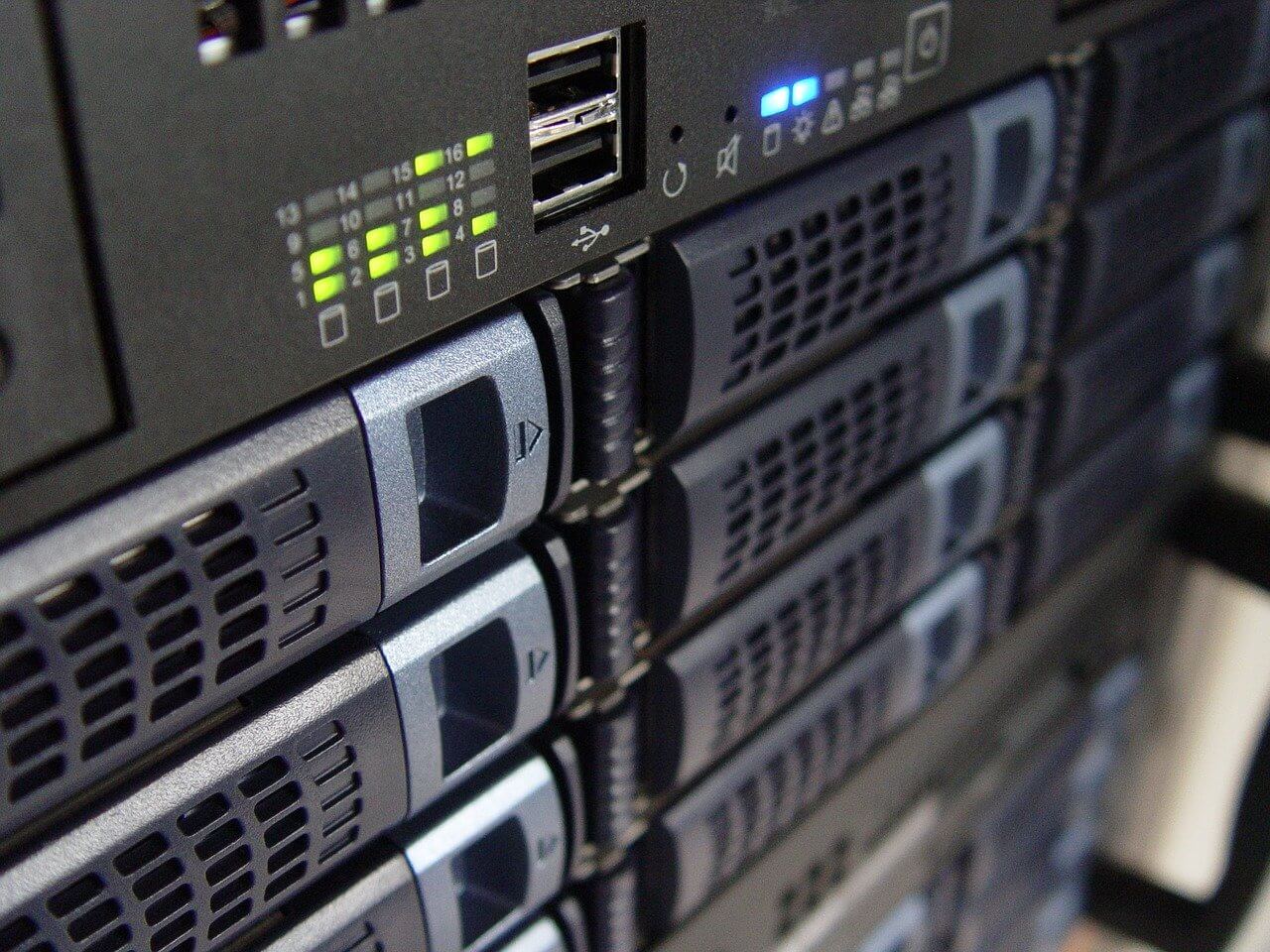 The wrong structure, the wrong size, and the wrong infrastructure of a building will have a negative impact on your brick-and-mortar location. The same thinking applies to your web hosting.
The wrong structure, the wrong size, and the wrong infrastructure of a building will have a negative impact on your brick-and-mortar location. The same thinking applies to your web hosting.
What is Web Hosting?
A website is series of files and databases that are served in such a way to present a web site to your visitors. Using a series of languages and procedures, the files in your website can produce the simplest of websites to the most complex.
These files and databases are housed on a server. A server is just a computer configured in such a way that visitors can access and execute files without having to be at the physical location of the system. Servers are setup and maintained by a host company - such as GoDaddy,Bluehost, Rackspace, InMotion and others. Hosting companies provide a variety of services, from initial setup to full service and maintenance of your server.
What are the Different Types of Hosting
Depending on your needs and technical proficiency, a number of options are available for hosting your small business website.
In-House
Since a server is merely a computer, it is possible to host your own website from desktop that sits in your office. There is something innately satisfying - and a bit spooky - knowing that the world is viewing your business using a system that is sitting just a few feet away from you. If you are not tech savvy - or do not have access to someone who is - this method IS NOT recommended for the average small business owner.
Pros:
- Low long term cost. No monthly or yearly hosting fees.
- Immediate access to the server. Just walk across the office.
- Complete control over who has virtual and physical access to the system.
Cons:
- Initial purchase and setup could be costly.
- Servers require constant maintenance and security checks. This is not for the faint of heart, nor for someone who is not trained in server technology.
- Could be unreliable. If your power goes down, so does your website.
Shared Hosting
When many websites are housed on the same server disk AND share resources like memory space and computing power, that is Shared Hosting. Individual accounts are fire-walled to prevent access from unauthorized users across websites. For small businesses that just starting up who are projecting a light to moderate initial traffic load on their site, shared hosting is probably the best way to go.
Pros:
- Low setup and monthly costs.
- No maintenance worries. Security and updates are built into the service provided by the web host company,
- Reliability. Hosting companies often have redundancy and safeguards built into the system - including back-up power and servers.
Cons:
- Because your site is sharing disk space AND resources, your website can be affected by the high resource use of another website. Websites on shared systems can be slow, or out of commission entirely, if another website is using most or all of the available resources. This reason is probably the major drawback of shared hosting.
- Websites on shared hosts use the same IP Address. If one of the sites on the server is found to be a possible spammer, the resulting action by internet providers like Comcast and Gmail is to classify that address as a source of spam and block it. The good news is that most shared hosting providers are very careful about screening sites on shared hosting.
Virtual Private Server
A Virtual Private Server (VPS) allows websites to be stored on the same disk, but they do not share any resources and do not impact each other. The VPS disk is partitioned in such a way that there is no interaction at all between sites. For businesses with moderate to moderately high volume, VPS is the probably the right solution.
Pros:
- No sharing of resources or IP addresses. The system resources that you paid for are all yours, and cannot be impacted by the high volume of other websites.
- More powerful. Hosting companies can give you more bandwidth and computing power.
- Lower cost. While more expensive than shared hosting, virtual private servers are much less costly than a dedicated server (discussed below).
- Cons:
- Higher level of tech savvy required. While most hosting companies will provide support for VPS, there can be a lot more "moving parts" that need to be managed.
- Cost. Again, while less expensive than a dedicated server, there is no question that moving your site to a VPS will increase your monthly cost.
Dedicated Server
As the name implies, a Dedicated Server is yours, and yours alone. You are the only site on that entire system, and all the resources are at your command. For business with high traffic load - and businesses requiring a specified level of security - a dedicated server will meet your needs.
Pros:
- Completely customizable. From the operating system to online who has access to your site - a dedicated server gives the owner complete control over their internet presence.
- Power. Dedicated servers are capable of amazing power and speed.
Cons:
- Cost. Dedicted servers are expensive! Your hosting and security needs will be major cost factors.
- Tech savvy required. While most hosting companies will provide initial setup, a dedicated server is your responsibility - including maintenance and security. So, on top of the cost of the server itself, businesses will need to factor in the expertise of a network specialist to keep everything up to snuff.
Cloud Servers
An emerging niche in the hosting business is cloud servers. As defined by Siteground, cloud hosting allows an "unlimited number of machines to act as one system." So, instead of one system providing the resources for a website, the memory and computer power come from a system of servers. That makes the entire system scalable - where resources are dedicated and consumed on an "as-needed" basis. Cloud servers promise to be an exciting - and inexpensive - option for small business owners and their websites.
Things to Avoid when Choosing a Host
Getting the wrong kind of host is like getting the wrong kind of building - it will impact your business in innumerable ways. Avoid these costly mistakes:
Hosting with your Web Design/Tech Company:
Web design and programming companies are great at what they do - designing and programming websites. In an effort to provide residual income from clients, these same firms will often insist upon hosting the sites they design on their own servers. Your site, your files, your business - held on a server to which you are often denied access. If your relationship with your designer/tech firm goes sour - or that firm goes out of business - your website's fate can be iffy at best. Find a good reliable hosting company, and make sure your business name and address are the primary contacts. Act242 offers options for you to purchase web hosting services through us - but we do not host them - and you will always have access to your server files.
Getting Too Much Server:
Start small and move up. Study the reports generated by your hosting company to see just how much traffic your site is generating, and how much resources it is using. It is better - and cost effective - to add resources your website if it needs it rather than pay for power your website does not need.
Getting a Self-Service Host:
Many hosting companies will provide servers - especially dedicated servers - at a bargain rate. The trade-off is that you will receive no support, no setup, and no maintenance. The peace-of-mind that comes from being able to call someone and cry "HELP" in the middle of the night is worth the few extra dollars.
Carefully consider your hosting requirements. Researched and configured properly, your site's host will give your customers and potential clients an enjoyable experience that will covert into income for your business.
Need advice on finding a host? We know how to find the right one for your company. Give us a call today to get your website online.

